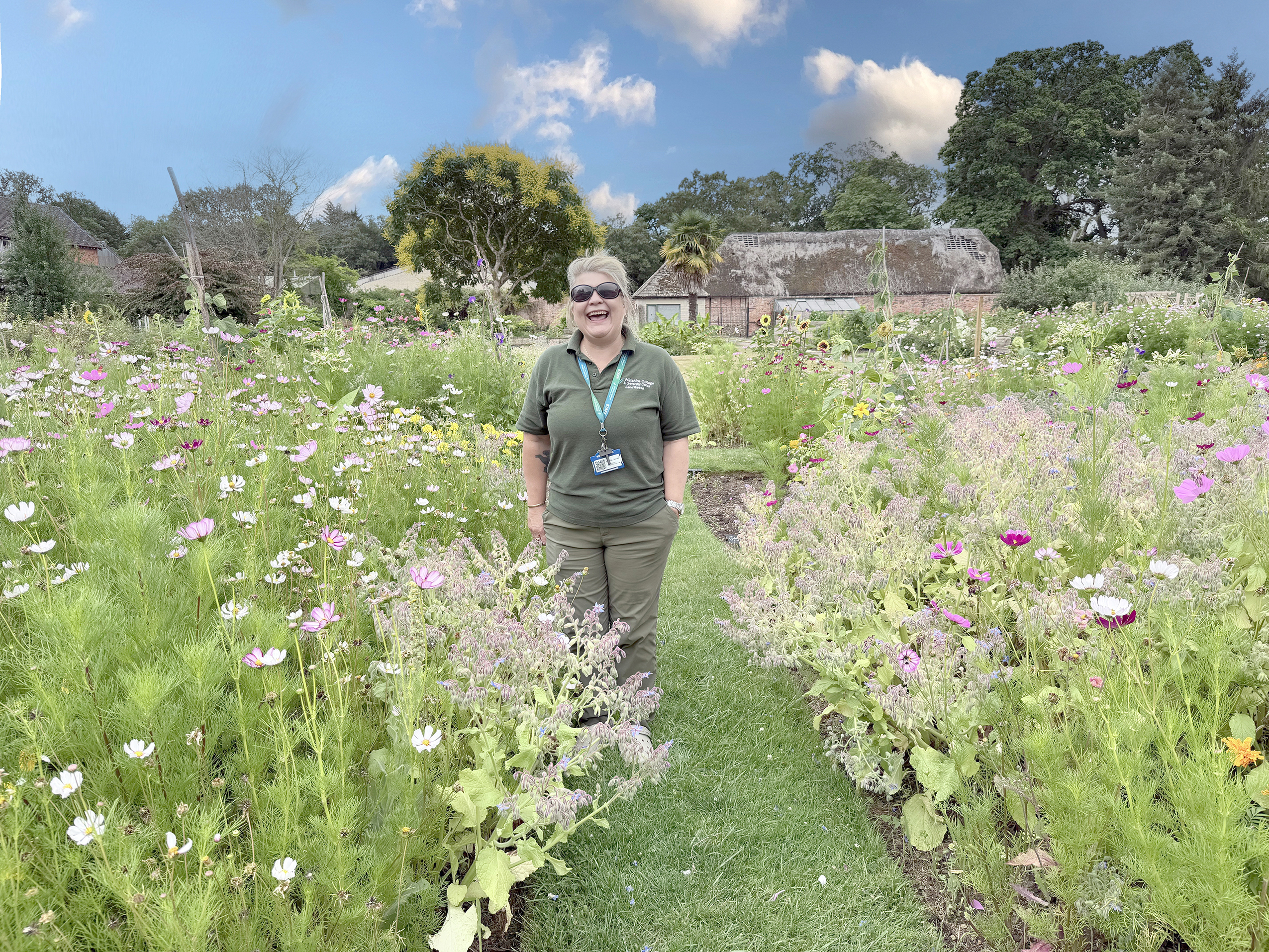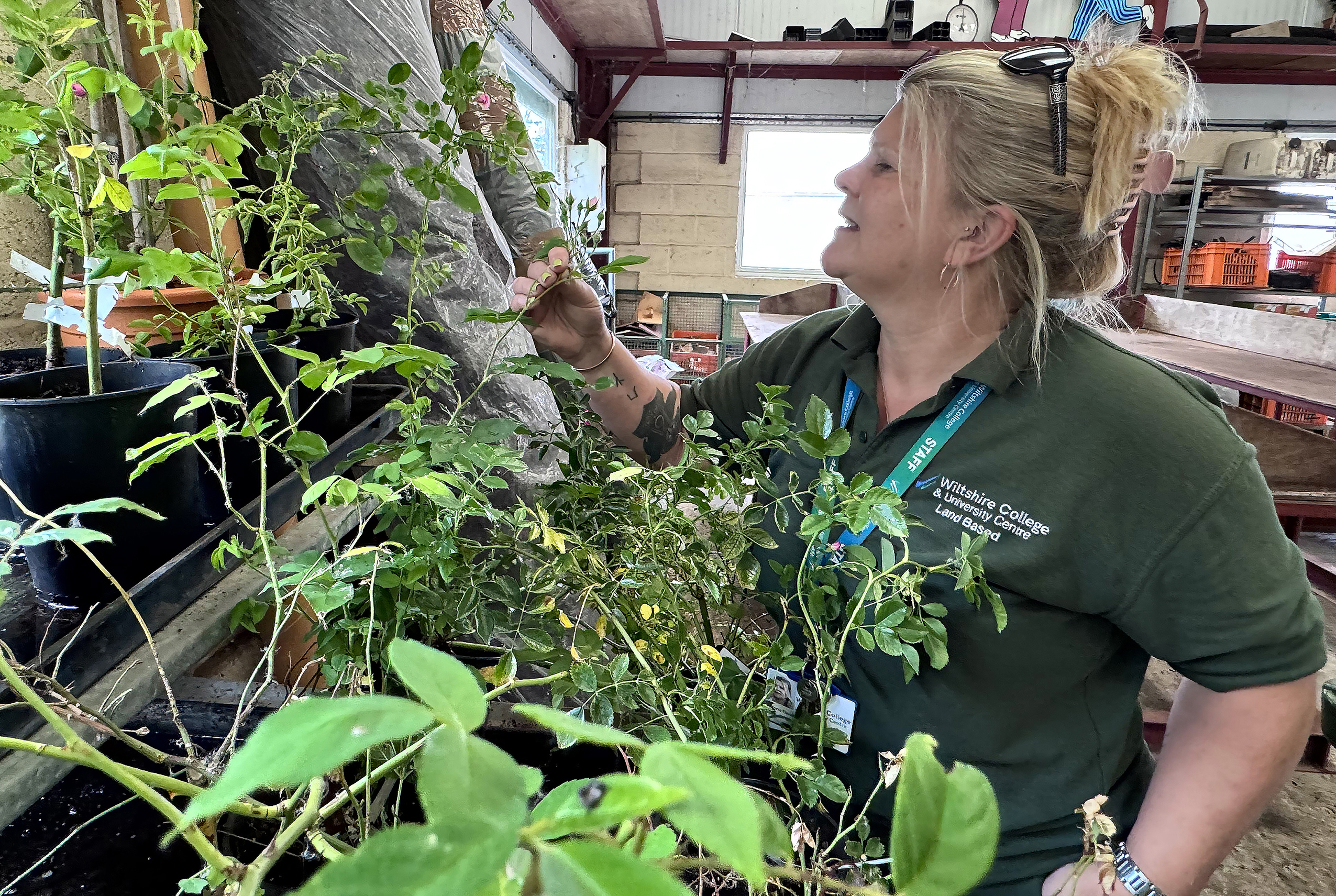In a quiet corner of Wiltshire College & University Centre’s Lackham campus, a team of horticulture apprentices and their lecturer are nurturing one of the UK’s most important rose collections.
 Since 2019, lecturer Victoria Fiander and her students have transformed the college’s walled garden into a living repository of rare and endangered rose varieties. What began with 32 cultivars has grown to 135, attracting the attention of experts at the Royal Horticultural Society (RHS) and world-renowned grower David Austin Roses.
Since 2019, lecturer Victoria Fiander and her students have transformed the college’s walled garden into a living repository of rare and endangered rose varieties. What began with 32 cultivars has grown to 135, attracting the attention of experts at the Royal Horticultural Society (RHS) and world-renowned grower David Austin Roses.
“They love our story here and are very interested in what we are doing,” said Victoria. “When I first arrived here we had 32 different rose cultivars (varieties), but we’ve worked with collectors all over the country to build that up to 135 and the students have played a big part in that.”

The collection is more than a showcase. It is becoming a vital conservation project, with 10 per cent of the roses now classed as out of circulation — meaning they are no longer commercially available.
“It’s so important to maintain this collection, if what we have in British gardens just dies, that rose is forgotten, it's lost,” said Victoria.
Among the gems is the German rose Gruss an Zabern, a variety that has all but disappeared from sale. “The one we have is beautiful, it’s like a wedding bouquet and there is not one sign of pest and disease on it,” Victoria explained. “A rose company called Trevor White is interested in working with us to bring it back into circulation.”
The project is supported by Plant Heritage, a national conservation charity, which is helping the college locate 29 more at-risk varieties. Meanwhile, the RHS is providing travel bursaries for staff and students to collect specimens.
Back at Lackham, propagation is carried out painstakingly by the apprentices. “We take a hardwood cutting, usually in October when the plant is in dormancy,” said Victoria. “We'll get two cuttings from a stem by cutting it at a leaf node, where all the hormones are. We put that in the ground and hope that it will generate the roots to make another plant.”
Each rose is geo-mapped, labelled with a QR code linking to its heritage, and digitally preserved in an herbarium at the RHS’s Wisley headquarters — alongside specimens dating back to Charles Darwin.
For the students, the project is as much about learning as conservation. “They get the hands-on experience of propagating and my motto is that as a good instructor, don't do for yourself what your students can do for you,” Victoria said.
“They might only remember five per cent of we tell them but they’ll retain 70 per cent of what they do. We want to provide a good education and a great learning journey for our students and doing this botanical study is the best way.”
Her 35 apprentices represent a broad mix of employers — from local councils and universities to sports clubs and commercial growers. This year, four new apprentices will even arrive from Premiership club Bournemouth FC.
The programme’s growing reputation has also brought expert visitors from the RHS, David Austin Roses and even Wessex Water to share knowledge and skills.
“We are very fortunate to have a reputation as a centre of excellence,” said Victoria. “That reputation has been carved from the landscape and it means the students get the very best learning experience.”
For more information about horticulture at WCUC, visit: www.wiltshire.ac.uk.
📸 Lecturer Victoria Fiander in the walled garden at Wiltshire College & University Centre’s Lackham campus
Want to know what’s on in Calne? Visit our local events page for listings and to find out how to add your own events for free. Follow us on Facebook, Twitter and Instagram to keep up with all the latest news. Have you got a story for us? Email editor@calnenews.com.



